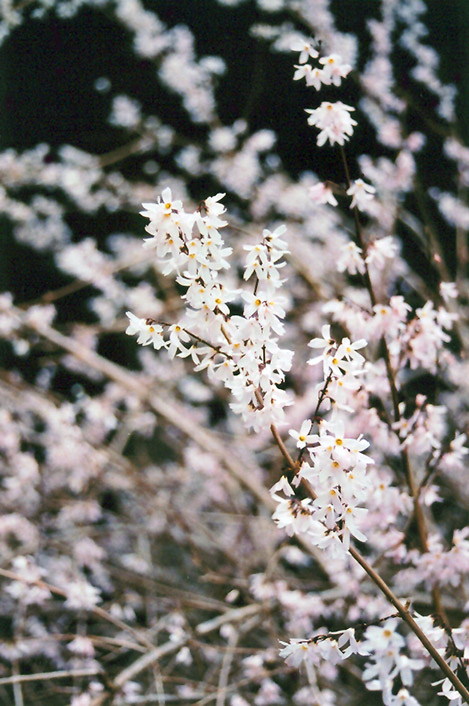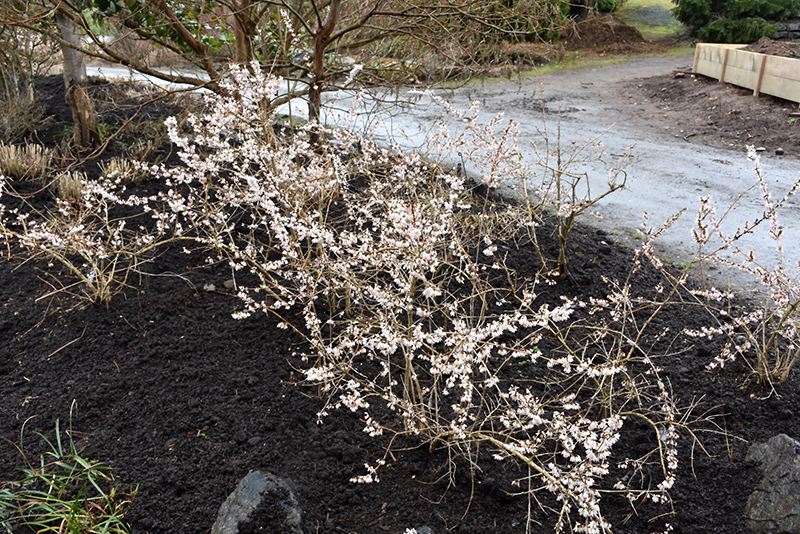>> Home
Height: 6 feet
Spread: 5 feet
Sunlight:
![]()
![]()
Hardiness Zone: 4b
Other Names: Korean Abelialeaf
Description:
A very early blooming shrub prized for its showy panicles of tiny white flowers in spring before the leaves, can be a rather sprawling shrub the rest of the year but easy to grow; good for the back of the garden
Ornamental Features
White Forsythia features delicate panicles of white flowers along the branches in early spring before the leaves. It has green deciduous foliage. The oval leaves do not develop any appreciable fall color.
Landscape Attributes
White Forsythia is a multi-stemmed deciduous shrub with an upright spreading habit of growth. Its average texture blends into the landscape, but can be balanced by one or two finer or coarser trees or shrubs for an effective composition.
This is a relatively low maintenance shrub, and should only be pruned after flowering to avoid removing any of the current season's flowers. It has no significant negative characteristics.
White Forsythia is recommended for the following landscape applications;
- Mass Planting
- Hedges/Screening
- General Garden Use
Planting & Growing
White Forsythia will grow to be about 6 feet tall at maturity, with a spread of 5 feet. It tends to fill out right to the ground and therefore doesn't necessarily require facer plants in front, and is suitable for planting under power lines. It grows at a medium rate, and under ideal conditions can be expected to live for approximately 30 years.
This shrub does best in full sun to partial shade. It prefers to grow in average to moist conditions, and shouldn't be allowed to dry out. It is not particular as to soil type or pH. It is highly tolerant of urban pollution and will even thrive in inner city environments. This species is not originally from North America.

